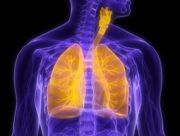Article
COPD Patients Lack Action Plans for Life-threatening Exacerbations
Author(s):
Though chronic obstructive pulmonary disease (COPD) exacerbations remain a top cause of US hospitalizations, 62% of patients surveyed by the COPD Foundation did not know much about them, and 16% had no knowledge on flare-ups.

The inability of chronic obstructive pulmonary disease (COPD) patients to effectively manage their respiratory condition may be associated with a lack of education and physician consultation, according to survey findings released by the COPD Foundation.
Between December 18, 2013, and January 8, 2014, the COPD Foundation and Kelton Global surveyed 1,102 patients aged 40 years or older with COPD, including chronic bronchitis or emphysema. Additionally, M3 Global Research conducted online surveys among 100 pulmonologists and 100 primary care physicians who treat COPD patients in the United States.
Based on the survey results, the COPD Foundation reported several concerning statistics. While the early detection of COPD is integral, patient respondents experienced COPD symptoms for an average of 2 years and 9 months before receiving a diagnosis. Moreover, only 12% of patients surveyed reported having their disease “completely controlled,” though the vast majority still indicated they were satisfied with their treatment regimens — a discrepancy that suggests patients are unaware of more effective therapies, the COPD Foundation noted.
Though life-threatening COPD exacerbations are a top cause of US hospitalizations, 62% of the patients surveyed did not know much about them, and 16% had no knowledge on flare-ups. Furthermore, the survey results indicated a communication gap between physician and patients, as 60% of the patients stated they did not have action plans for flare-ups, even though almost all of the physicians claimed they discussed them with their COPD patients.
Emphasizing the importance of early disease detection and intervention, the COPD Foundation noted 39% of the physicians surveyed had patients with “severe” or “very severe” symptoms at the time of their diagnosis. Nevertheless, less than half of the physician respondents said they consistently perform spirometry to confirm a patient’s COPD diagnosis.
“COPD can be treated, but it’s crucial for doctors to diagnose it early and for patients to follow the appropriate therapeutic strategies to improve symptoms, increase activity, and reduce the chances of exacerbations,” said MeiLan Han, MD, MS, Associate Professor of Medicine in the Division of Pulmonary and Critical Care at the University of Michigan. “It's important that physicians develop an individualized approach that works best for each patient.”





